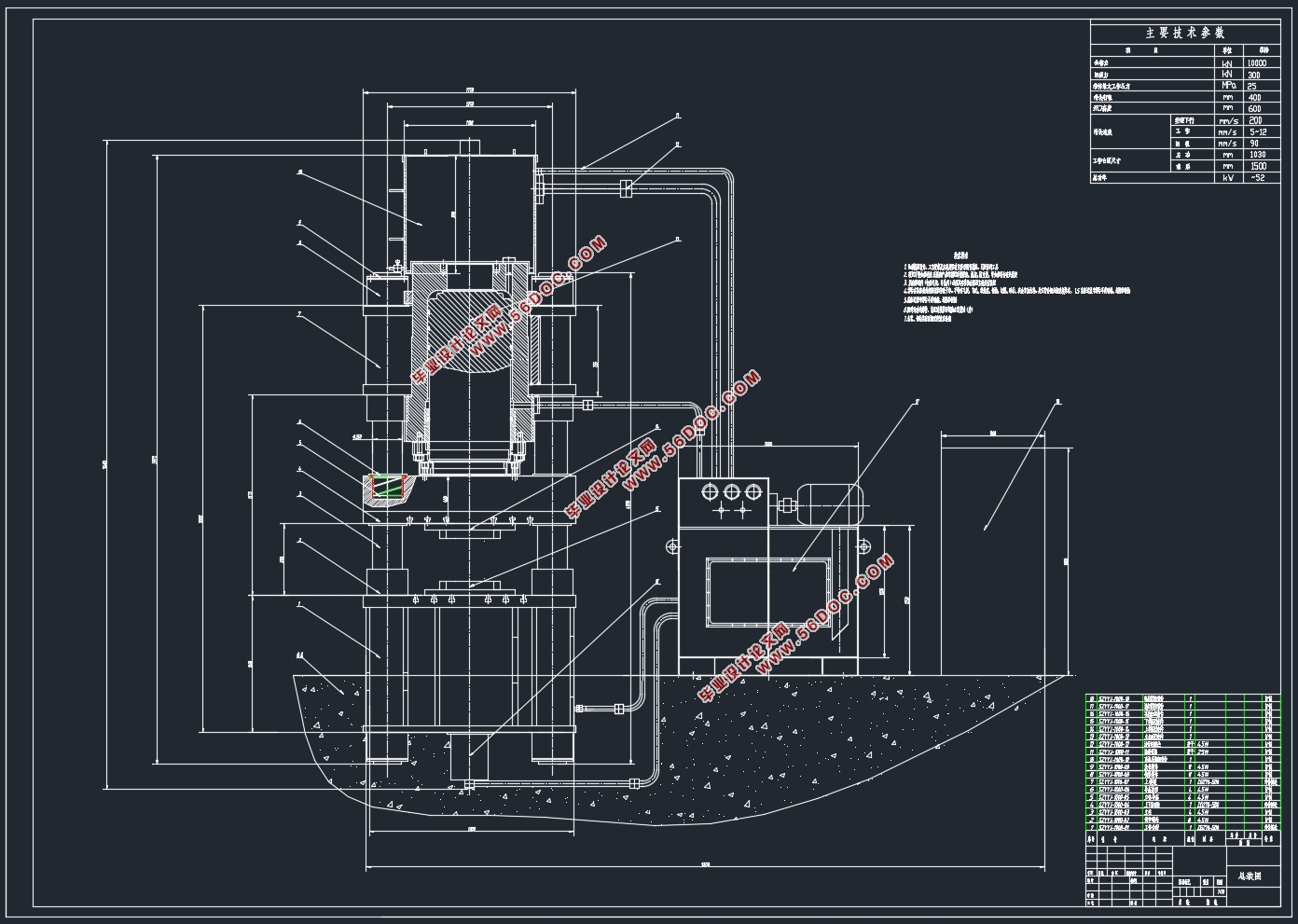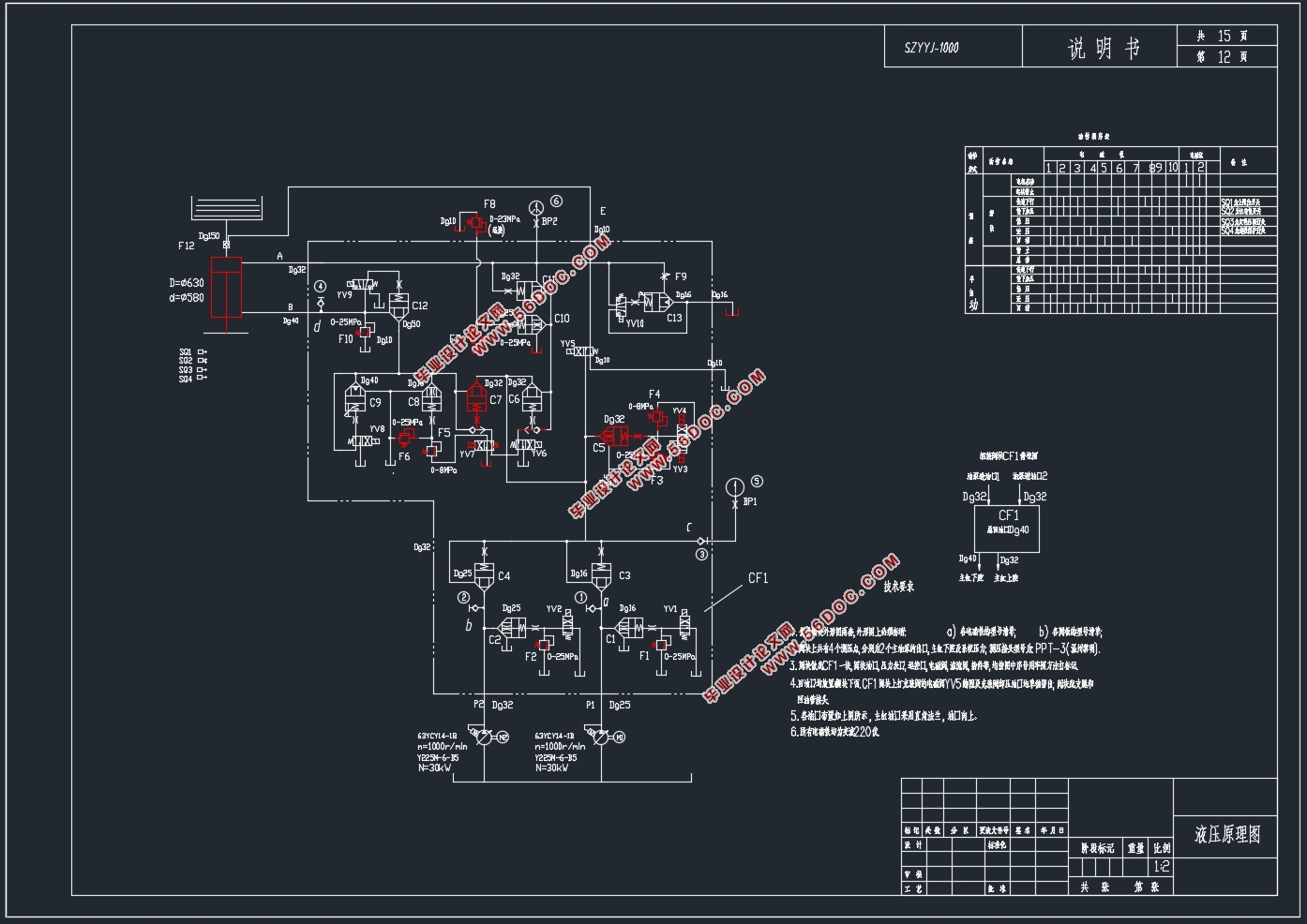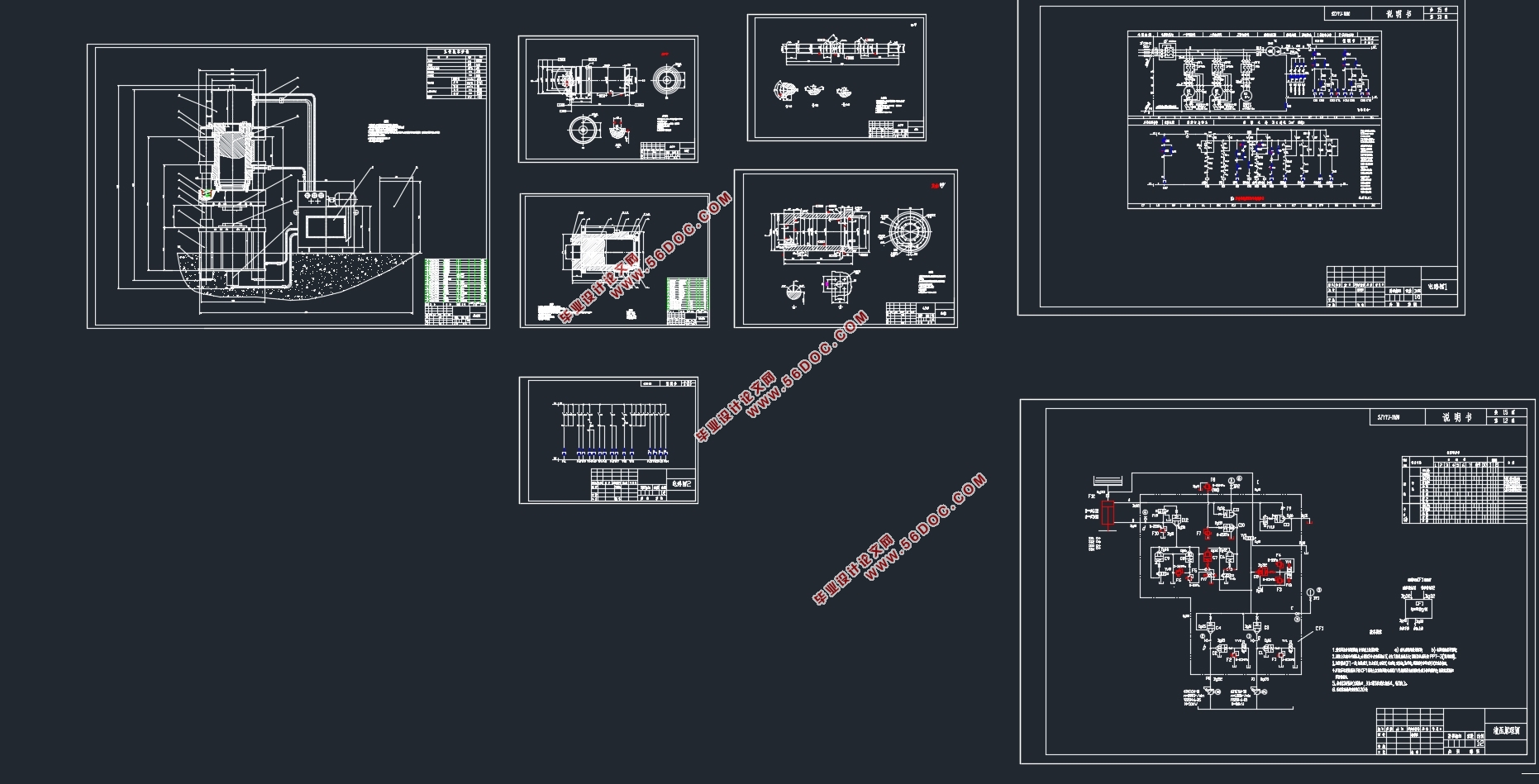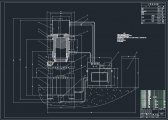小型液压机液压系统设计(含CAD零件图装配图)(论文说明书12000字,CAD图8张)
摘 要
液压机是一种以液体为作业介质,其系帕斯卡原理制成,是用来传递能量以完结各种工艺的机器。液压机液压传动系统的作业特征是以压力改换为主,其广泛使用于机械工业的许多范畴。例如锻压、板 料冲压、金属冷揉捏、塑料制品、磨料制品、金刚石成形、校对包装、打包、压砖、橡胶注塑成型、海绵钛加工、人造板热压、粉末冶金,甚至炸药模压等非常广泛的不同工业范畴。
液压机是使用液压传动技能进行加工的设备。跟着液压技能的开展,液压机在国民经济的各个范畴都得到广泛的使用,例如铸造液压机,模锻液压机、冲压液压机、制作炸药及火箭固体燃料用的液压 机,全能液压机。它们具有许多长处:如结构简略,结构布局灵敏;能够依据工艺要求来灵敏改动其压力与行程;能够依据工艺要求非常便利的在各种部位安置所需的液压缸;与机械压力机比较,具有 压力和速度可在广泛的规模内无级调速;可在恣意方位输出悉数功率和坚持所需压力;各执行组织动作可很便利地到达所期望的合作联系;振荡小、易于完结计算机控制及自动控制等等。特别是近年来,液压技能及液压元件、计算机控制技能等有了迅速开展,使得各种液压机的功能日趋完善。层压液压机、揉捏液压机、限制及打针液压机、打包压块液压机等一些液压设备在科学生产中也得到广泛 的使用。
本次研究液压机具有独立的动力组织和电气系统,选用按钮集中控制,可完结调整、手动及半自动三种作业方法。液压机的作业压力、限制速度,空载快速下行和减速运转的行程和规模,均可依据工艺需 要进行调整。并能完结顶出工艺、可带顶出工艺、拉伸工艺三种工艺方法。每种工艺又有定压,定程两种工艺动作供挑选。
关键字:液压系统, 压力机, 自动控制,
ABSTRACT
Hydraulic press is a kind of liquid as working medium, which is made of PASCAL principle, is used to transfer energy to end various processes of the machine. Hydraulic transmission system is characterized by pressure change, which is widely used in many fields of mechanical industry. For example, forging, plate pressing, metal cold kneading, plastic products, abrasive products, diamond forming, proofreading packaging, packaging, brick pressing, rubber injection molding, titanium sponge processing, wood-based panel hot pressing, powder metallurgy, even explosive molding and other very different industrial categories.
Hydraulic press is the use of hydraulic transmission skills for processing equipment. With the development of hydraulic technology, hydraulic press has been widely used in various categories of national economy, such as casting hydraulic press, die forging hydraulic press, stamping hydraulic press, hydraulic press for making explosives and rocket solid fuel, and all-round hydraulic press. They have many advantages: such as simple structure, structure layout sensitive; Can be sensitive to change its pressure and stroke according to the process requirements; Can be very convenient according to the process requirements in various parts of the required placement of hydraulic cylinders; Compared with mechanical press, the pressure and speed can be stepless in a wide range of speed regulation. Can output the full power and the pressure required to maintain at the arbitrary bearing; (I) the actions of the executing organizations facilitate the desired cooperative linkages; Small oscillation, easy to end computer control and automatic control, etc. Especially in recent years, hydraulic skills and hydraulic components, computer control skills have been rapidly developed, making the functions of various hydraulic presses increasingly perfect. Some hydraulic equipment such as laminating hydraulic press, kneading hydraulic press, restriction and injection hydraulic press, packing hydraulic press and block hydraulic press are also widely used in scientific production.
In this study, hydraulic press has independent power organization and electrical system, which can be controlled centrally by buttons, and can be finished adjustment, manual operation and semi-automatic operation. Hydraulic press operating pressure, speed limit, no load fast down and speed down the trip and size of the operation, can be adjusted according to the needs of the process. And can end ejecting technology, can take ejecting technology, stretching technology three process methods. Each process also has fixed pressure, fixed distance two process action for selection.
Keywords: hydraulic system, press,, automatic control,
2.1液压机基本技术参数
2.1.1液压机设计要求
1、主缸公称压力 8000kN
2、主缸回程力 1600KN
3、顶出缸公称压力 1000kN
4、顶出缸回程力 600KN
5、滑块距工作台最大距离1800mm
6、滑块行程.1200mm
7、顶出行程400mm
8、工作压力25MPa
9、滑块速度空程速度 120mm/s
挤压速度 15---25mm/s
回程 110mm/s
10、顶出速度顶出 140mm/s
回程 150mm/s
11、工作台中心孔Φ100mm
12、工作台面大小根据设备稳定性进行设计。(2200*1600,1600*1600,3150*2000)



目 录
ABSTRACT II
第一章 概论 1
1.1 液压机的工作原理 1
1.2 四柱液压传动系统组成 1
1.3液压机的发展趋势 3
第二章 液压机本体结构设计 4
2.1液压机基本技术参数 4
2.1.1 液压机设计要求 4
2.2 液压缸的基本结构设计 5
2.2.1液压缸的类型 5
2.2.2钢筒的连接结构 5
2.2.3缸底结构 5
2.3 缸体结构的基本参数确定 6
2.4 各缸动作时的流量 7
2.4.1 主缸进油流量与排油流量: 7
2.4.2顶出缸的进油流量与排油流量: 8
2.5 确定快速空程的供液方式、油泵规格和电动机功率 8
2.5.1快速空程时的供油方式 8
2.5.2确定液压泵流量和规格型号 8
4.1 主液压缸 11
4.1.1负载 11
4.1.2行程及速度 11
4.2顶出液压缸 11
4.2.1负载 11
4.2.2行程及速度 11
第五章 确定压力机液压缸的主要参数 13
5.1 初选液压缸的工作压力 13
5.1.1主缸负载分析及绘制负载图和速度图 13
5.2 确定液压缸的主要结构参数 14
5.2.2主缸无杆腔的有效工作面积A1 15
5.2.3主缸活塞杆直径d 15
5.2.4主缸有杆腔的有效工作面积A2 15
5.2.5主缸的工作压力 15
5.2.6液压缸缸筒长度 15
5.3 计算液压缸的工作压力、流量和功率 16
5.3.1主缸的流量 16
5.3.2主缸的功率计算 16
5.3.3顶出缸的内径Dd 17
5.3.4 顶出缸无杆腔的有效工作面积A1d 17
5.3.5顶出缸活塞杆直径dd 17
5.3.6顶出缸有杆腔的有效工作面积A2d 17
5.3.7 顶出缸的流量 17
第六章 拟订压力机液压系统原理图 18
6.1 确定液压系统方案 18
6.1.1快速行程方式 18
6.1.2减速方式 18
6.1.6主缸与顶出缸的互锁控制回路 19
6.1 电磁铁动作循环表 19
6.2 拟定液压系统原理图 20
第七章 选择液压元件 22
7.1选择液压泵和确定电动机功率 22
7.2 选择液压控制阀 23
7.3 选择辅助元件 24
7.3.1 确定油箱容量 24
7.3.2油管的计算和选择 25
7.3.3选择液压油 25
第八章 PLC控制部分 26
8.1 PLC概述 26
8.2 控制部分设计 26
第九章 液压系统的仿真与运行 29
9.1 FluidSIM-H仿真软件的介绍 29
10.2 液压系统的仿真 30
10.2.1 工进时液压系统的仿真 30
结论 32
谢 辞 33
主要参考文献 34
|







